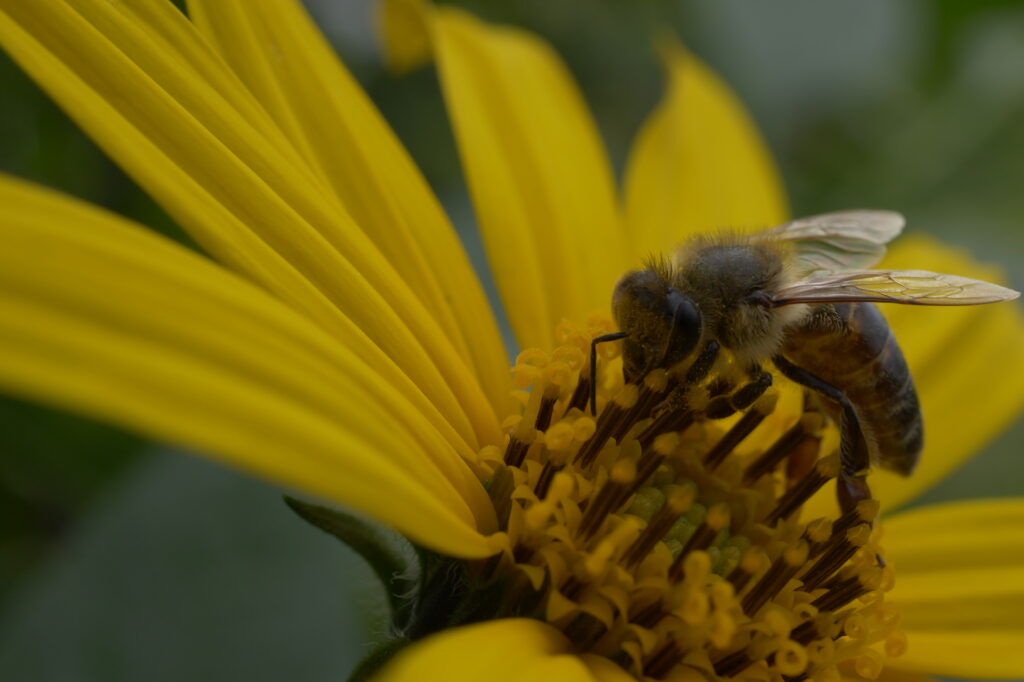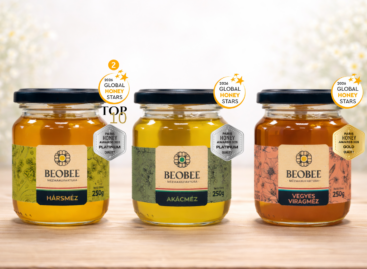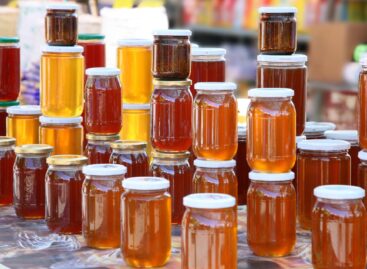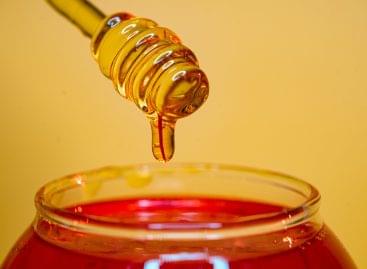The inhabitants of the hive don’t rest in the fall either: this is how we can help pollinators
Every third bite of food is thanks to pollinators, without their work we would lack basic food. Although most of us think of bees in spring and summer, autumn is also important for them: this period determines how they survive the winter and how strong they can set off in spring. Here are some tips on how we can help pollinators with their autumn work.
What happens to the bee colony in autumn?
 As the days get shorter, life in the hive also changes. The summer worker bees die, and a new generation, the wintering bees, takes their place. The queen bee no longer lays eggs in colder weather, which is why the wintering bees live longer. Their task is to survive the winter and care for and raise the worker bees that emerge in spring. They ensure the bee colony survives the winter. This requires that the hive be filled with sufficient honey and pollen in the summer, which will provide them with food during the cold months, and thanks to this, the bee colony can start with new strength in the spring.
As the days get shorter, life in the hive also changes. The summer worker bees die, and a new generation, the wintering bees, takes their place. The queen bee no longer lays eggs in colder weather, which is why the wintering bees live longer. Their task is to survive the winter and care for and raise the worker bees that emerge in spring. They ensure the bee colony survives the winter. This requires that the hive be filled with sufficient honey and pollen in the summer, which will provide them with food during the cold months, and thanks to this, the bee colony can start with new strength in the spring.
How can we help pollinating insects?
We can also do a lot for the survival of bees in the fall if we consciously shape our environment. It is worth planting plants in the garden or even on the balcony that also offer food during this period. Aster, borage, thyme and sage, for example, are valuable sources of nectar. Water supply is also a key issue: in recent years, longer warm periods have often occurred in the autumn months, so it is worth placing shallow drinkers so that the insects can replenish their fluid needs.
We should not forget about next spring either. By planting autumn bulbs such as crocus, saffron or hyacinth, we can provide early food for bees, thus supporting the functioning of bee colonies at the beginning of the season.
It is equally important to avoid chemicals and pesticides, as these not only kill pests, but also weaken pollinators. Chemical-free gardening directly contributes to the health of pollinators and also protects the diversity of nature in the long term.
Related news
This is how we eat honey in 2026
🎧 Hallgasd a cikket: Lejátszás Szünet Folytatás Leállítás Nyelv: Auto…
Read more >









